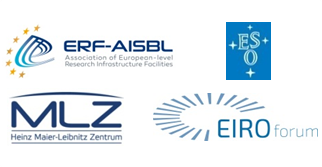Speakers
Mr
Dan Hillier Hillier
(Science and Technology Facilities Council)Mr
James Watson
(Science and Technology Facilities Council)
Description
The UK Government is introducing a new appraisal and evaluation framework for all large Research Infrastructure investments. The introduction of this new framework was prompted by the UK National Audit Office report on capital investment in science projects in 2016. The key findings of this report were that BEIS (UK Department of Business, Energy and Industrial Strategy) did not have adequate processes in place to assess and prioritise large capital investments or to evaluate those investments throughout their lifetime. STFC’s Impact Evaluation Team have carried out impact evaluations of strategically significant investments across STFC over several years, for example SRS, ISIS, Cryogenics, MRI, Oxford Instruments etc. These studies have tended to focus on long term impacts, sometimes over 30 years. Historically, we have focused our efforts at the Evaluation stage of the Policy and Programme cycle. However, with the introduction of the new BEIS requirements, this may need to be revisited so that STFC can manage the whole cycle in a more strategic way which maximises the use of the resources and expertise available. We present this new framework and how STFC is responding to these requirements, highlighting some key recent evaluation examples from our programme.
We will then present the STFC Evaluation Framework for Public Engagement. This framework, the result of a two year project, sets out a coherent approach to the evaluation of the diverse, nationwide activities under our new five year PE Strategy. We will outline how the framework defines very precisely a series of key, related concepts, in particular “reach” and “outcomes”, so that these can be captured consistently through a range of data gathering methods. This enables us to aggregate data from activities across the PE programme so that we can report on, improve and celebrate individual activities and, critically, the programme as a whole.
We believe this proposal merits a plenary session due to its strategic nature and therefore its relevance to a wide range of participating institutions.
Primary authors
Mr
Dan Hillier Hillier
(Science and Technology Facilities Council)
Mr
James Watson
(Science and Technology Facilities Council)

